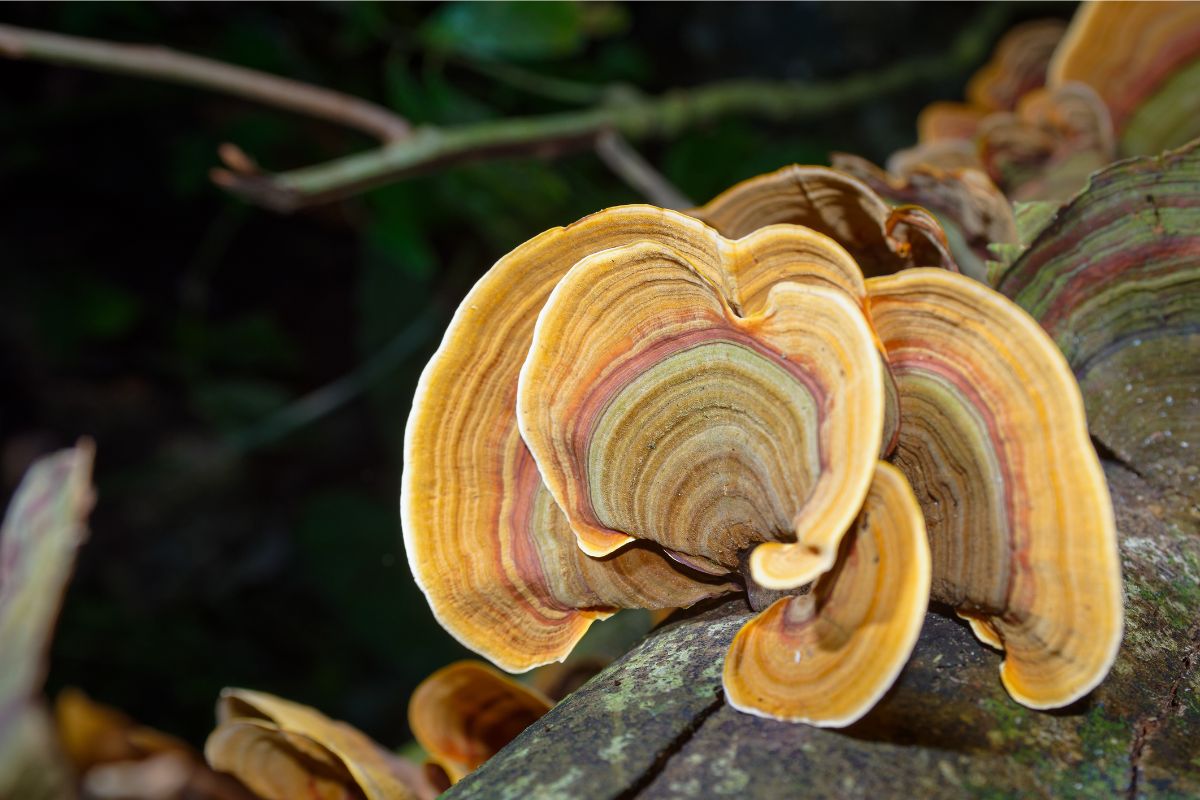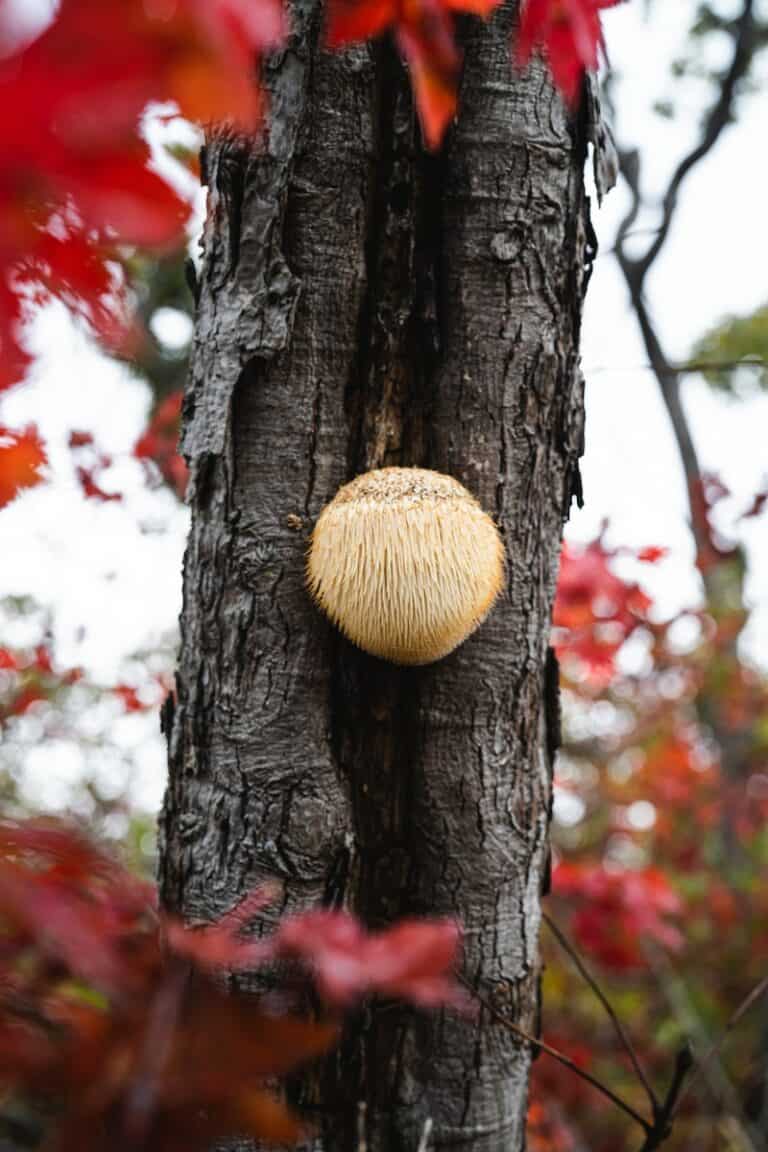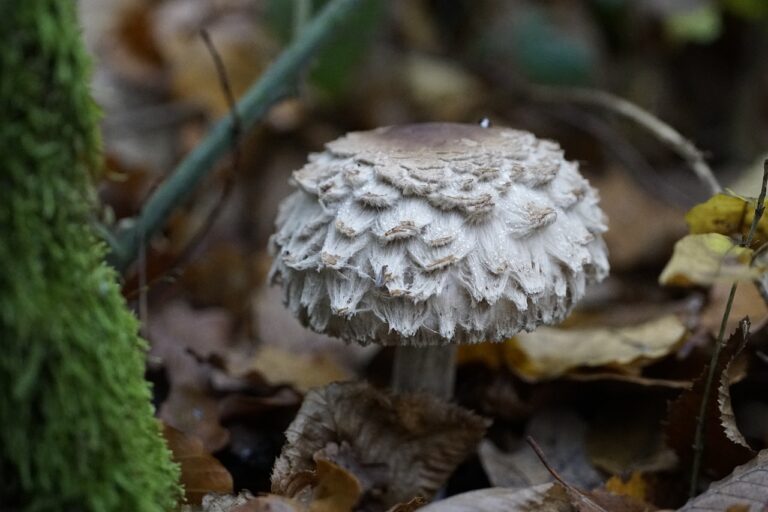Turkey tail mushrooms (Trametes versicolor) have gained popularity in recent years due to their myriad of health benefits. These colorful fungi, commonly found on decomposing wood, have been used in traditional medicine for centuries, particularly in Asia. Scientific research has begun to validate their potential healing properties, revealing that these unique mushrooms possess immune-boosting, gut-healing, and antioxidant properties that may improve overall health and wellbeing.
Among the compounds responsible for turkey tail mushroom’s health benefits are polysaccharide-K (PSK) and polysaccharide-peptide (PSP), which have been shown to stimulate the immune system. PSK and PSP may aid in fighting infections and even help the body combat certain types of cancer. Additionally, other bioactive compounds found in turkey tail mushrooms, such as antioxidants and prebiotics, contribute to their therapeutic potential.
Incorporating turkey tail mushrooms into one’s diet or as a supplement can provide a natural means of improving health and supporting the immune system. As interest in this remarkable fungus continues to grow, further research is likely to uncover even more benefits and applications in both medicine and general wellness.
History and Origin of Turkey Tail Mushroom
Table of Contents
The Turkey Tail mushroom (Trametes versicolor) is a medicinal fungus that has been used for centuries across different continents. It is native to Asia, China, North America, and Europe. Its distinctive appearance, resembling the tail feathers of a turkey, has made this mushroom easily recognizable.
In Asia, particularly in traditional Chinese medicine, the Turkey Tail mushroom has played a significant role as a health supplement. It was believed to provide various health benefits, including immune system support and cancer-fighting properties. Today, modern scientific research has supported many of these historical claims, validating the mushroom’s medicinal properties.
In European and North American cultures, Turkey Tail has also been valued for centuries. It was commonly used as a folk remedy in various forms, such as teas and tinctures, to support the immune system and promote overall well-being. The widespread use of this mushroom across different cultures is a testament to its historical significance in natural medicine.
The history and origin of Turkey Tail mushroom is deeply rooted in ancient cultures, particularly in Asia and China, where it has played a significant role in traditional medicine. From North America to Europe, this mushroom has been valued for its health benefits across various parts of the world. As research continues to confirm the medicinal properties of Turkey Tail, it remains an essential component of modern natural medicine, building on its rich history and cultural significance.
Components of Turkey Tail Mushroom
| Component | Description |
|---|---|
| Polysaccharides | Beta-glucans, including PSK (polysaccharide-K) and PSP (polysaccharide-peptide), known for immune system support and potential anti-cancer properties. |
| Proteins | Various bioactive proteins with immunomodulatory effects. |
| Polysaccharopeptides | Protein-bound polysaccharides with potential health benefits, including immune support and antioxidant properties. |
| Terpenoids | Compounds with potential anti-inflammatory and antioxidant effects. |
| Phenols | Natural antioxidants that may help protect cells from oxidative stress. |
| Minerals | Contains minerals such as potassium, calcium, magnesium, and phosphorus. |
| Vitamins | Small amounts of vitamins, including B vitamins like riboflavin and niacin. |
| Fatty Acids | Essential fatty acids, including linoleic acid. |
| Amino Acids | Building blocks of proteins that play various roles in health. |
| Fiber | Dietary fiber, which can contribute to digestive health. |
| Water | Makes up a significant portion of the mushroom’s composition. |
| Other Compounds | May contain trace elements, enzymes, and bioactive substances that contribute to its potential health benefits. |
Polysaccharopeptides (PSP and PSK)
Turkey tail mushrooms contain two vital polysaccharopeptides, PSP (polysaccharide peptide) and PSK (polysaccharide krestin). These compounds are widely known for their immune-modulating properties. PSP has been associated with anti-tumor activities and has shown promise in treating cancer patients undergoing chemotherapy and radiation therapy by reducing side effects and enhancing immune response1. PSK is another potent immunostimulant that has been the subject of numerous clinical trials, showing positive benefits in overall survival rates and reducing the risk of cancer recurrence2.
Phenolic Compounds
Phenolic compounds are another group of bioactive compounds present in turkey tail mushrooms. These compounds possess antioxidant properties that help to protect the body’s cells against oxidative damage and promote overall health3. They also contribute to the antimicrobial and anti-inflammatory properties of turkey tail mushrooms, making them a valuable addition to a healthy diet.
Flavonoids
Turkey tail mushrooms contain various flavonoids, such as quercetin, that exhibit antioxidant, anti-inflammatory, and anticancer properties4. Flavonoids help neutralize free-radicals, reducing the risk of chronic diseases and supporting overall wellness. Incorporating turkey tail mushrooms into your diet can help you benefit from the numerous health-promoting advantages of flavonoids.
Baicalein
Baicalein is another beneficial compound found in turkey tail mushrooms. It is known for its strong antioxidant and anti-inflammatory properties, which can help to protect the body against oxidative stress and inflammation-related chronic diseases5. Research on baicalein also suggests potential anticancer activity, further highlighting the benefits of consuming turkey tail mushrooms.
Beta-Glucan
Turkey tail mushrooms are a rich source of beta-glucan, a type of polysaccharide that has been extensively studied for its immune-enhancing properties6. Beta-glucan stimulates the immune system and helps bolster the body’s natural defense mechanisms. Studies have also reported potential benefits of beta-glucan in managing diabetes, reducing cholesterol levels, and improving gut health7. The presence of beta-glucan in turkey tail mushrooms further strengthens their reputation as a potent functional food with numerous health benefits.
Health Benefits and Key Research Findings
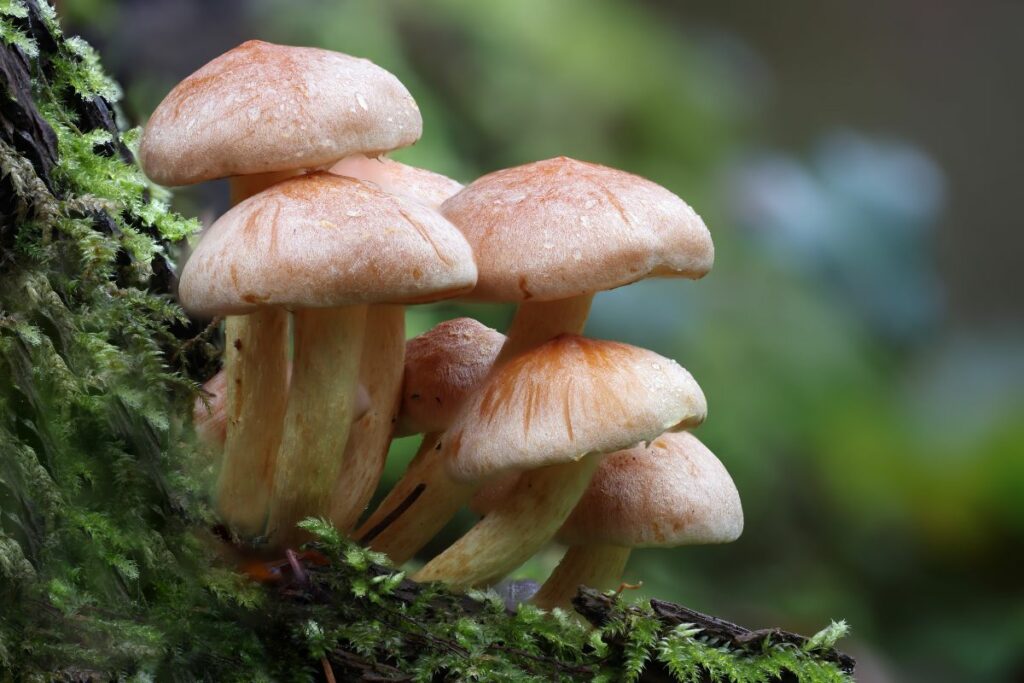
Immune Support and Fatigue Reduction
Turkey tail mushrooms contain potent immune-modulating properties that can help in supporting the immune system1. They consist of beta-glucans, which are known to enhance immune functions and combat fatigue. Research suggests that these mushrooms can help in activating immune cells and potentially reduce chronic fatigue in individuals undergoing intensive treatments or suffering from long-term illnesses.
Impact on Gut Health and Digestion
Turkey tail mushrooms have a positive impact on gut health and digestion, as they contain prebiotics that support the growth of beneficial gut bacteria such as Bifidobacterium and Lactobacillus2. These mushrooms help maintain a healthy gut microbiome by promoting the growth of good bacteria and improving overall digestion. A healthy gut microbiome is essential for overall health, as it plays a crucial role in digestion, nutrient absorption, and immune system function.
Potential Anti-Cancer Properties
Numerous studies have highlighted the potential anti-cancer properties of turkey tail mushrooms3. These mushrooms have been shown to exhibit anti-melanoma activities in vitro and have been linked to combating various forms of cancer, including breast cancer, gastric cancer, lung cancer, colon cancer, and colorectal cancer. In conjunction with conventional cancer treatments like chemotherapy and radiation, turkey tail mushrooms might offer additional support in fighting cancer cells and enhancing immune functions.
Anti-Diabetic Effects
Turkey tail mushrooms have demonstrated potential anti-diabetic effects as well. They have been shown to help lower blood sugar levels in animal studies4. Further research is needed to establish the efficacy of these mushrooms in managing diabetes in humans, but their potential in controlling blood sugar levels is promising.
Potential Athletic Performance Enhancement
While there’s limited research on the direct impact of turkey tail mushrooms on athletic performance, their potential to support immune functions, reduce fatigue, and improve gut health suggests that they might indirectly contribute to enhanced physical performance. By promoting overall health, turkey tail mushrooms could potentially help athletes and active individuals maintain their energy levels and avoid fatigue during training and competitions.
Supplementation and Usage
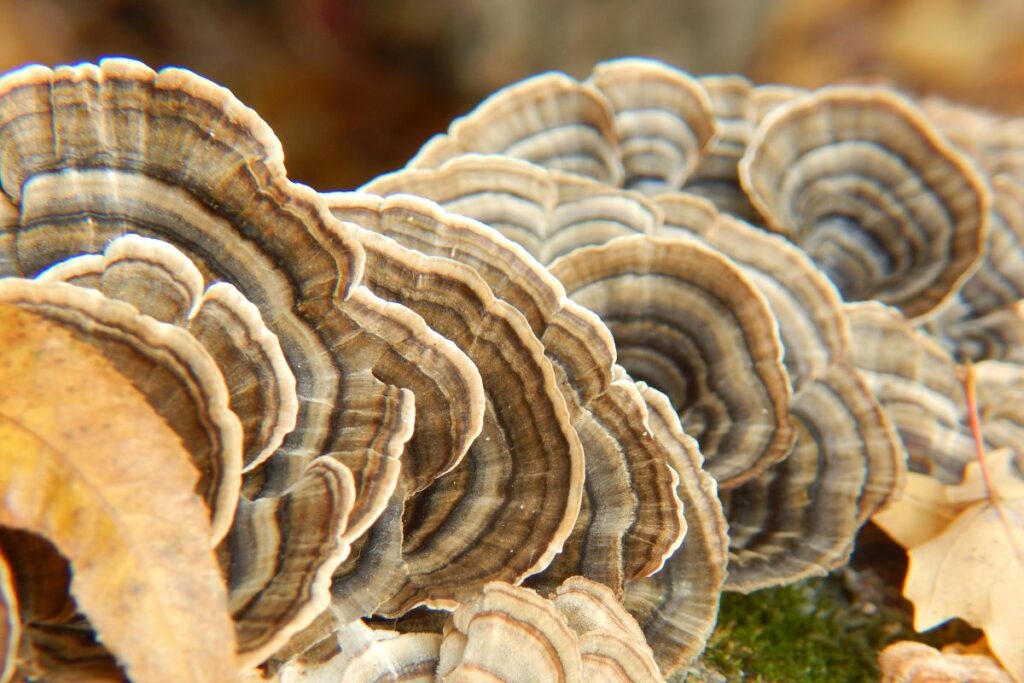
Tea and Extracts
Turkey tail mushroom can be consumed as a tea or in the form of extracts. To make turkey tail tea, dried mushroom pieces are steeped in hot water for several minutes. This process releases the beneficial compounds, such as polysaccharopeptides, into the water. Drinking this tea regularly can greatly support immune health and provide other health benefits. On the other hand, turkey tail extracts can be added to various beverages or taken directly as a concentrated liquid supplement. These extracts are derived from the mushroom and contain concentrated amounts of its bioactive compounds, making them a potent and convenient way to enjoy the benefits of turkey tail mushroom.
Capsules and Powder
Capsules and powders are another way to supplement with turkey tail mushroom. Powders can be incorporated into smoothies, soups, and other dishes or mixed with hot water to make a tea. This form of supplementation is versatile and can be easily tailored to suit individual preferences and dietary needs. Capsules offer a convenient, pre-measured dosage, making them an easy option for those looking to incorporate turkey tail mushroom into their daily routine. Both capsules and powders allow for the rapid absorption of the beneficial compounds found in turkey tail mushroom.
Prebiotic Supplements
Turkey tail mushroom also contains prebiotic compounds, which can support the growth of beneficial bacteria in the digestive system. Prebiotic supplements often combine turkey tail mushroom with other prebiotic-rich ingredients such as inulin and galacto-oligosaccharides. These supplements are specifically designed to boost digestive health by promoting a balanced gut microbiome. By incorporating prebiotic turkey tail mushroom supplements into a well-rounded diet, individuals can experience improved gut health and immune function.
Side Effects and Considerations
When incorporating Turkey Tail mushroom into a wellness routine, it is essential to be aware of the potential side effects, interactions, and safety considerations. Though generally considered safe, it is vital to take a cautious and informed approach when introducing this natural remedy.
Potential side effects of consuming Turkey Tail mushroom may include stomach upset, diarrhea, and darkened stools1. These side effects are typically mild and may subside over time as the body adjusts to the mushroom supplement. However, if symptoms persist or become severe, discontinue use and consult a healthcare professional.
Individuals with specific health conditions, such as human papillomavirus (HPV), need to take additional precautions. While some studies suggest potential benefits of Turkey Tail mushroom in supporting the immune system for people with HPV2, it is crucial to consult a doctor before starting any supplements, as interactions may occur.
For pregnant women or those trying to conceive, the safety of Turkey Tail mushroom is undetermined. While no significant adverse effects have been reported, there is a lack of research on the long-term effects of Turkey Tail mushroom during pregnancy3. It is always advisable for pregnant women to consult their healthcare provider before starting any new supplement.
Additionally, be aware of possible drug interactions when consuming Turkey Tail mushroom. While not extensive, some reports suggest potential interactions with immunosuppressive medications4. If you are taking any form of medication, it is best to discuss incorporating Turkey Tail mushroom with your healthcare provider to avoid any adverse reactions.
In conclusion, although Turkey Tail mushroom provides a range of potential health benefits, it is essential to consider the potential side effects, interactions, and safety concerns. Always consult a healthcare professional before starting any supplements and monitor your body’s responses to ensure a safe and beneficial experience.
Quality Assessment and Regulation
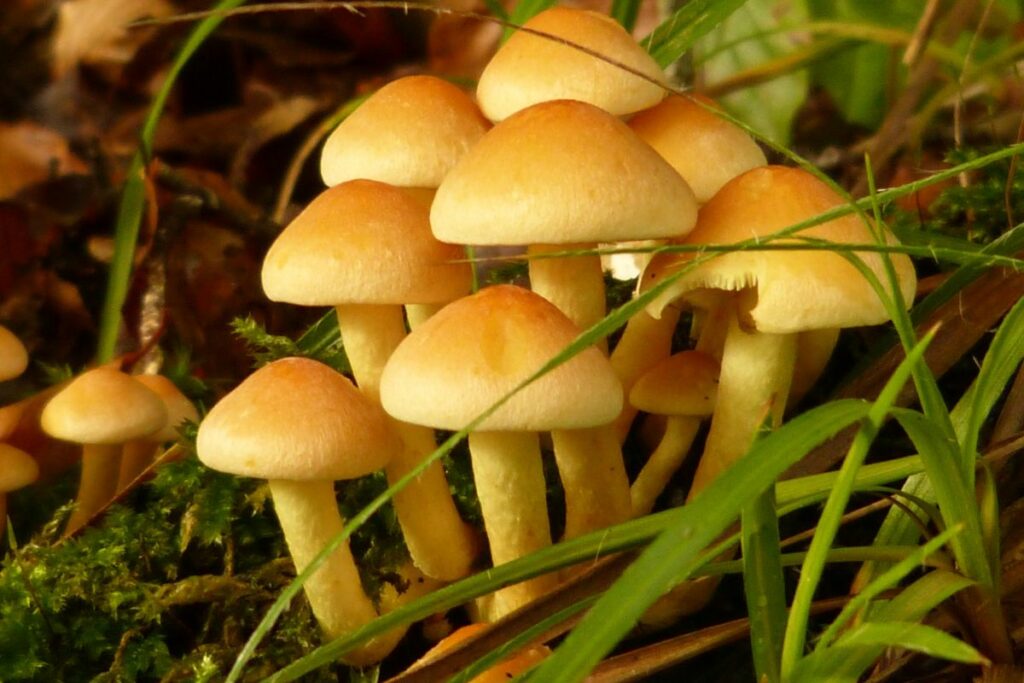
Turkey tail mushroom, also known as kawaratake, has been widely recognized for its potential health benefits. However, it is essential to ensure the quality and safety of these products for consumers.
The Food and Drug Administration (FDA) regulates dietary supplements, including turkey tail mushroom products, to some extent. It is essential to note that the FDA does not approve dietary supplements like prescription medications. Instead, they are subject to less-strict regulations, and manufacturers are responsible for the safety and accurate labeling of their products. Nevertheless, the FDA can take action against a company if their product is found to be unsafe or if false claims are made about its benefits.
One of the main bioactive components of turkey tail mushroom is polysaccharide-K (Krestin, PSK). PSK has been studied extensively for its potential role in cancer treatment, and it has even been approved for use in some countries. However, it is crucial to ensure that PSK-containing products are of high quality and free from contaminants to maximize their potential benefits and minimize risks.
For consumers looking to use turkey tail mushroom products as a supplement, it is essential to ensure the products are tested and certified by reputable third-party organizations. One such organization is the NSF International, which offers certification and testing services for dietary supplements. By choosing a product that has been certified by NSF, consumers can have increased confidence in the product’s quality, safety, and accuracy of the label claims.
In conclusion, quality assessment and regulation are vital when it comes to turkey tail mushroom products. While the FDA offers some oversight, consumers must also take responsibility for selecting high-quality supplements that have been tested and certified by reputable organizations. By doing so, individuals can be more confident in the safety and potential health benefits of including turkey tail mushroom products in their daily routine.
Frequently Asked Questions
What is the recommended dosage for cancer patients?
The recommended dosage of Turkey Tail mushroom for cancer patients may vary depending on the individual and the supplement form. It is essential to consult with a healthcare professional before beginning any supplement regimen, especially for cancer patients.
How does it affect the immune system?
Turkey Tail mushroom contains beta-glucans, which are known to have immunomodulatory activity. These compounds may help stimulate the immune system and enhance its ability to fight infections and illnesses.
Can it help with weight loss?
There is limited evidence linking Turkey Tail mushroom directly to weight loss. The primary focus of its benefits lies in immune support and overall wellness. It is essential to maintain a balanced diet and exercise regimen for effective weight loss.
Are there any side effects or risks?
Although Turkey Tail mushroom is generally considered safe, some individuals may experience side effects such as digestive discomfort, allergies, or interactions with other medications. It is crucial to consult a healthcare professional before taking any supplement, especially for those with pre-existing medical conditions or taking prescribed medications.
Is it beneficial for brain health?
There is limited research on Turkey Tail mushroom’s direct impact on brain health. However, its immune-enhancing properties may contribute to overall wellness, which can indirectly support brain function.
What are the preferred ways to consume it?
Turkey Tail mushroom can be consumed in various forms, including capsules, powders, teas, or tinctures. The choice depends on personal preference, availability, and the specific health goals you want to achieve. It is vital to choose high-quality products from reputable sources to ensure safety and effectiveness.
Footnotes
- https://www.ncbi.nlm.nih.gov/pmc/articles/PMC5031782/ ↩ ↩2 ↩3
- https://www.dl.begellhouse.com/journals/708ae68d64b17c52,1b1b20957ef5c8f4,210d57c00e88b78c.html ↩ ↩2 ↩3
- https://www.dl.begellhouse.com/journals/708ae68d64b17c52,3d8e7b4f6342518e,4675f12b644a5c81.html ↩ ↩2 ↩3
- https://www.ncbi.nlm.nih.gov/pmc/articles/PMC4027497/ ↩ ↩2 ↩3
- https://www.sciencedirect.com/science/article/pii/S1055790319303195 ↩
- https://www.ncbi.nlm.nih.gov/pmc/articles/PMC3951199/ ↩
- https://www.sciencedirect.com/science/article/abs/pii/S0022030207737126 ↩

